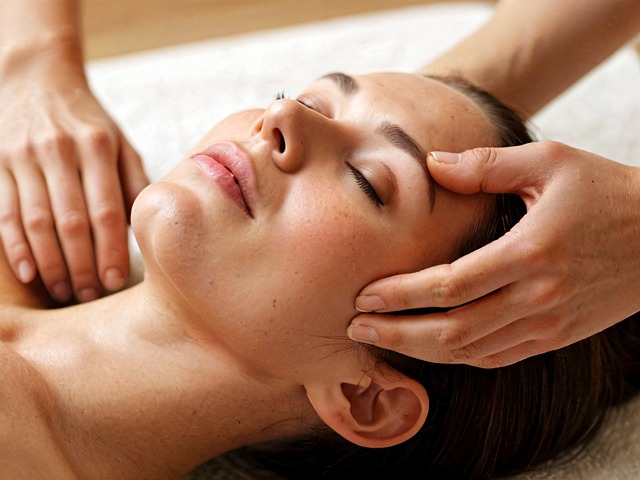Cortisol, the 'stress hormone,' plays a key role in our body's response to stimuli. Cold water immersions like ice baths trigger a stress response that may impact cortisol levels by releasing adrenaline and noradrenaline. Regular cold therapy can reduce cortisol and improve endocrine health over time, offering benefits for conditions like thyroid disorders and insulin resistance. However, individuals with circulation issues or on certain medications should exercise caution, consulting healthcare providers first. Gradual exposure and controlled immersion are essential practices for safe and effective cold water therapy.
“Uncover the powerful impact of cold water immersion on your body’s stress response and hormone balance. This practice, known as cold therapy or cryotherapy, has gained popularity for its potential health benefits, particularly in reducing cortisol levels. In this comprehensive guide, we explore the science behind stress hormones and how a simple plunge into cold water can be a game-changer for endocrine health. From understanding cortisol’s role to uncovering long-term advantages and safety tips, discover why regular cold water immersions may just be the key to managing stress and promoting overall well-being.”
Understanding Cortisol and Stress Hormones: The Basis for Cold Water Immersion
Cortisol, often referred to as the ‘stress hormone,’ plays a pivotal role in our body’s response to stress and its regulatory functions are far-reaching. It is produced by the adrenal glands in response to various stimuli, including exercise, sleep deprivation, or emotional distress. This hormone helps regulate metabolism, controls inflammation, and supports immune function while also preparing the body for action during stressful situations.
Cold water immersion, such as cold plunges or ice baths, has gained attention for its potential benefits on endocrine health. By exposing the body to a sudden drop in temperature, these immersions trigger a stress response that may influence cortisol levels. The body’s natural reaction involves releasing hormones like adrenaline and noradrenaline, which prepare us for ‘fight or flight’ situations. Interestingly, this process can also lead to a temporary decrease in cortisol, offering a potential explanation for the perceived stress-relieving effects of cold water therapy.
The Physiological Response to Cold Water Plunges: Reducing Cortisol Levels
Cold water immersion, such as ice baths or cold plunges, has been shown to elicit a powerful physiological response in the body. When an individual is exposed to cold water, the body activates a series of reactions designed to protect and preserve core temperature. One of the key aspects of this response is the modulation of stress hormones, particularly cortisol.
Cortisol, often referred to as the stress hormone, plays a crucial role in regulating various physiological processes. In times of stress or danger, cortisol levels typically increase, preparing the body for a “fight or flight” response. However, chronic elevated cortisol levels can have detrimental effects on overall health, including endocrine system imbalances. Cold water immersions provide an effective means to trigger a negative feedback loop, leading to reduced cortisol release. By decreasing cortisol levels, these plunges may offer significant benefits for endocrine health, promoting a state of balance and well-being.
Long-term Benefits of Regular Cold Water Immersion on Endocrine Health
Regular cold water immersion offers a range of long-term benefits for endocrine health. By exposing the body to cold temperatures, hormones like cortisol, which are often elevated in response to stress, can be regulated. Studies suggest that cold therapy can reduce cortisol levels and decrease the body’s overall stress response, leading to improved hormone balance over time. This is particularly beneficial for individuals dealing with chronic stress or conditions related to dysregulated hormones, such as thyroid disorders or insulin resistance.
Additionally, regular cold plunges have been shown to stimulate the release of other endocrine-related hormones, including norepinephrine and endorphins, which play a role in mood regulation and pain reduction. This combination of effects contributes to a enhanced sense of well-being and can foster a more resilient hormonal response to daily stressors, ultimately promoting better overall health.
Safety Considerations and Best Practices for Cold Water Therapy
When considering cold water immersion as a stress-relieving therapy, safety should always be the top priority. It’s essential to approach this practice with caution and an understanding of its potential risks. The shock of cold water can cause vasoconstriction, temporarily reducing blood flow to extremities. This is particularly important for individuals with certain medical conditions like Raynaud’s disease or those taking medications that affect circulation. Before plunging into icy waters, consult a healthcare provider to ensure it’s safe and to discuss any specific precautions.
Best practices for cold water therapy include gradual exposure. Start by soaking feet in cool water for a few minutes before gradually moving to colder temperatures. For full-body immersion, begin with shallow water and take deep breaths while slowly lowering yourself in. Stay in the water for a duration that feels comfortable, typically between 2 to 5 minutes. Regularity is key; consistent cold plunges offer cumulative benefits for endocrine health by potentially reducing cortisol levels and promoting stress resilience.
Cold water immersion, or cold plunging, has emerged as a powerful tool to regulate stress hormones, particularly cortisol. The physiological response to this practice involves a significant reduction in cortisol levels, offering long-term benefits for endocrine health. By consistently exposing the body to cold stimuli, individuals can experience improved stress resilience and overall well-being. However, it’s crucial to approach this therapy with safety considerations and best practices to ensure positive outcomes and mitigate potential risks, making regular cold plunges a promising natural method for enhancing endocrine balance and promoting a healthy response to stress.
